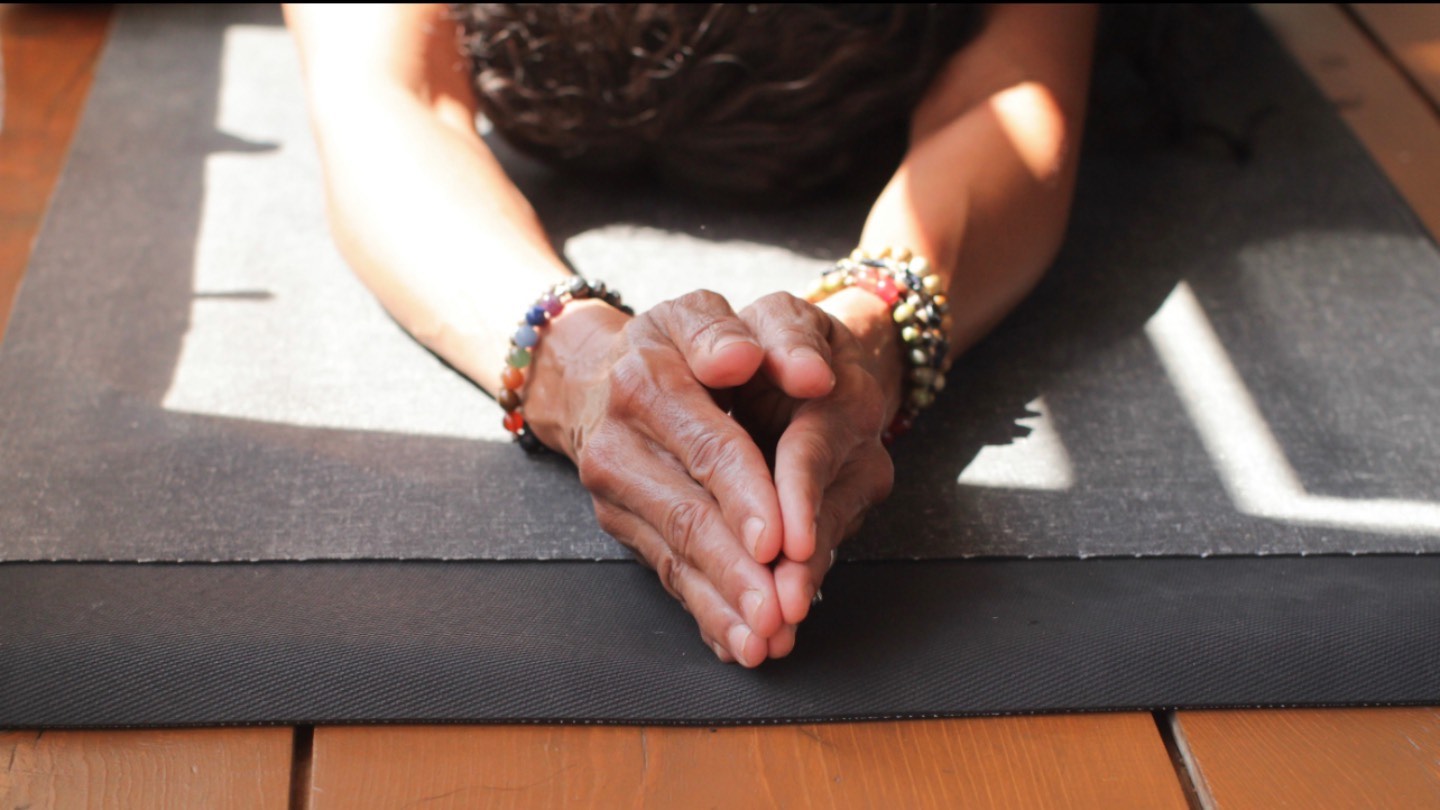Instructor Self-Care: Teaching for the Long Haul
- By Amber Jaworsky
- Published: 14.02.2023
- Last Updated: 15.02.2023

Self-care.
It’s a popular buzzword, and for good reason! Self-care is a crucial aspect of our overall health and well-being, and this is especially true for fitness instructors. As a fitness professional, you spend your day helping others to improve their physical and mental health, but it is just as important for you to prioritize your own self-care. By taking better care of yourself, you can reduce stress and burnout, improve your performance and ability to inspire others, and model healthy behaviors for your clients.
Our Industry Needs You
An ancient Roman poet once said that “your health is your greatest wealth.” This is true in more ways than one for fitness instructors. From a quantitative standpoint, your income depends heavily upon your ability to physically teach your classes. Qualitatively speaking, your classes are more effective when you can pour your heart, creativity, and vibrant energy into them.
All of this is pretty obvious.
It’s the more chronic, subtle things that can wear you down and make you feel like giving up on a profession that makes a difference for a lot of people. It’s the aching knees, the member comments, the pressure to showcase the latest and greatest moves, and the ongoing nature of planning classes week after week, etc., that make us question what we’re working so hard for.
It’s a lot. It’s not easy, and that’s why not everyone can do it.
But, you can, and our industry needs you!


Why is Self-Care Essential for Instructors?
Self-care is a non-negotiable practice for fitness instructors. Intentional acts of self-care nourish and strengthen you wholistically and replenish your energy. Leading with a full cup enables you to show up as the healthiest, most vibrant version of yourself.
Your students get to drink from the overflow of the health and life force you have cultivated within yourself. They don’t get to drink you dry unless you let them.
Here are some other reasons why you should take self-care seriously.
- To maintain energy levels and avoid burnout: Teaching multiple classes and training clients can be physically and mentally demanding. Self-care practices, like getting enough sleep, eating enough of the right kinds of foods, and balancing out your work:rest ratio can help you maintain energy levels and avoid burnout.
- To model healthy behavior: Like it or not, you are a role model for your clients, and practicing self-care demonstrates that you take comprehensive health seriously. Nothing dashes credibility more than the “do as I say, not as I do” mentality.
- To improve performance: Proper self-care boosts your physical and mental game, allowing you to provide better instruction and achieve better results with your students.
- To reduce the risk of injury: Fitness professionals have an increased risk of overuse injuries due to repetitive movements, chronic holding patterns on a bike, and/or extended periods of standing. Incorporating self-care practices like stretching, foam rolling, and active recovery can help reduce the risk of injury.
- To improve overall well-being: Self-care practices improve your overall well-being by reducing stress, promoting relaxation, and improving your mood. This can lead to a better quality of life and a more positive outlook on life.


What is Self-Care
The dictionary defines self-care as:
- The practice of taking an active role in protecting one’s own well-being and happiness, particularly during periods of stress.
- The practice of taking action to preserve or improve one’s own health.
Types of Self-Care
Self-care practices are unique and vary from person to person. It’s all about what works for you and what makes you feel healthy and restored.
There are eight areas of self-care to consider when it comes to your well-being and productivity.
1. Physical Self-Care: Out of all eight categories, physical self-care is arguably the most critical form of self-care because a lack in this area can affect pretty much every other area of your life. Not to mention the fact that teaching your classes feels a lot harder and less enjoyable if you’re constantly battling injuries and illnesses.
2. Mental Self-Care: “Our lives are always moving in the direction of our strongest thoughts.” - Craig Groeschel
If we are stuck in a spiral of toxic thinking and negativity, our thoughts bring more harm than good.
Mental self-care practices include:
- Learning new things
- Practicing gratitude
- Doing a social media detox
- Engaging in games or puzzles that challenge your thinking
- Setting goals and rewarding yourself for even small accomplishments
3. Emotional Self-Care: Emotions influence the expression of our feelings, and they ultimately shape our behaviors too. Emotional self-care enables you to love and accept yourself and become more emotionally mature toward others. If you’re not well emotionally, it shows up in your classes.
Emotional self-care practices include:
- Setting healthy and clear relational boundaries
- Spending time alone to gather your thoughts and settle your body
- Acknowledging and naming how you are feeling
- Journaling
- Having a good cry
- Asking for help
4. Environmental Self-Care: Know yourself well enough to know the type of environment that motivates and supports you. Maybe it’s a bustling coffee shop or a quiet corner in your house. Perhaps it is a small boutique studio where everybody knows your name, or maybe even a mega-club with tons of amenities and a lot of people. To truly thrive, you need to align yourself personally and professionally with the right environment.
5. Financial Self-Care: Very few of us are getting rich by giving the gift of fitness to others. Our “why” is often bigger than the paycheck we glean from the classes we teach, but we need to try and cultivate a healthy relationship with money.
Financial stress can add a tremendous amount of stress and anxiety to our lives and can cut your career as a fitness professional short. So here are a few financial self-care strategies that can be helpful:
- Deal with debt head-on.
- Use a money app to keep track of your spending.
- Leave a little margin in your bank account if possible. Spending everything you make fuels a scarcity mentality that can affect our relationship with ourselves and others.
- Set financial goals for the year.
- Invest in your future. I hope that we are all teaching well into our older years, but I doubt that our days will be packed full of energetic output and constant sweating. We’ll need to slow down at some point, and a little nest egg will be just what we need to support us. Start planning for that now.
6. Social Self-Care: We grow and heal in community. Social connections help us feel loved and less alone, and they also sharpen our communication skills. Engaging in the hard work of maintaining healthy relationships is a great way to maintain social self-care. Nobody enjoys conflict, and nobody thrives in isolation, so let’s get out there, find our tribe, and love them hard!
7. Recreational Self-Care: aka taking time to have FUN! Life is not meant to be a full-throttle grind. When we engage in recreational activities, we “re-create” energy and joy within ourselves. Recreational self-care is all about enjoying the things that bring you joy, so start by making a list of the things that make you feel alive and happy. Try to do at least one light-hearted activity from your list every week.
8. Spiritual Self-Care: The aforementioned forms of self-care have primarily focused on nurturing your mind, body, and relationships. Spiritual self-care aims to nourish your soul. Spiritual self-care practices help you tap into your inner being so you can find a deeper purpose and more meaning in your life. Activities in this area also help you cultivate internal calm, peace, and hope during challenging situations.
Spiritual self-care activities include:
- Meditating or breath work
- Spending time in nature
- Going to a place of worship
- Prayer
- Yoga
Which area of self-care do you feel like you are best at?
Which area of self-care would you like to grow in?


How to Practice Self-Care:
Here are some key things you can do to create a rich legacy as a fitness professional.
- Prioritize rest and recovery: Make sure to get enough sleep and incorporate active recovery activities into your routine. Our bodies heal and rejuvenate from the inside out when we sleep; it’s hidden but essential work.
- Fuel and hydrate your body like it’s your job… because it is! Eating a balanced diet, with an appropriate amount of calories, will help you maintain energy levels and support muscle recovery.
- Take breaks: Remember that it's important to take time off and give your body a break. You won’t miss a beat by taking a few days, or even a week off, from physical activity. Your mind and body will come back refreshed and ready to work.
- Stay organized: Plan and schedule your workouts, classes, and client sessions to keep yourself on track and avoid last-minute scrambling. More on this below.
- Manage stress: Make time for activities that you enjoy and that help you relax, such as reading, meditation, or spending time with friends and family.
- Keep learning: Keeping up with new research and trends in the fitness industry will help you stay current and improve your skills as an instructor. The fitness industry is constantly evolving, and it’s crucial to align with new knowledge in order to deliver safe, effective, and unforgettable classes.
A passion for people and a love for fitness are great motivators, but they aren’t enough to set you apart from everyone else.
Click HERE to learn why continuing education and workshops are worth the investment and how Stages Cycling University can help.
How to Take Care of Your Voice
- Wear a mic and don’t yell. It’s not uncommon for instructors to develop vocal cord polyps and nodules. Nodules can be caused by a variety of things, but the most common is overuse or abuse of the voice, such as screaming, using an unnatural pitch, or talking too much when the vocal cords are inflamed. Nodules typically present as persistent hoarseness, breathiness, and increased effort to speak. Your voice will have a low pitch and will sound rough, scratchy, gravelly, or hoarse.
- Project noise from your gut rather than your throat.
- Stay hydrated. Dehydration can actually “show up” in your voice. It is recommended that the average person drink half their body weight in water ounces. Fitness professionals need more than that, especially if you are consistently sweating a lot.


How to Find Balance
- Finding a balanced teaching schedule for your body is critical. Not everyone can physically thrive and teach thirteen to fifteen classes a week. Listen to your body and notice how you are energetically showing up in other areas of your life. Your family, friends, and loved ones deserve your best, not what’s left, so find your sweet spot.
- Format matters. If you are only teaching high-intensity classes without incorporating restorative practices into your regimen, you are setting yourself up for injury, imbalance, burnout, and a compromised immune system. Restorative practices are a powerful antidote to stress. They soothe our overcharged nervous systems, quiet our agitated minds, and gently open our contracted bodies. Other health benefits include:
- lower blood pressure
- weight loss (by lowering cortisol levels)
- balanced blood PH, improved digestion
- better sleep
- Embrace the trifecta. We tend to gravitate towards one of three types of activities: flexibility and restorative training, strength and resistance training, or cardiovascular and endurance training. The thing we like the most, we do the most. But, our bodies need a balance of all three to thrive, so try to create a dynamic fitness schedule that you can sustain for years.
- Be sure to workout on your own. The classes we teach are not really “our” workouts. Yes, we’re moving and burning a ton of calories, but as an instructor, our main role is to facilitate a workout for other people. Pull back, modify, get off the bike, step out of the flow, and connect with your students. Give them the gift of a great workout, and be sure to give yourself the gift of a great workout without the pressure of having to be “on” or the leader. It’s good to give and receive.
- Be mindful of the amount of subbing you are doing. It’s nice to help a fellow instructor out, but check in with your body first (not just your schedule) before you say yes to that sub request. When you sub, it’s not just a “job,” it’s more stress on your body. Be good to the body, that’s enabling and supporting your profession.


How To Work Smarter, Not Harder
Being on stage and caring for others can drain your energy and your bandwidth.
Here are a few tips for keeping your mind organized:
- Organize your class plans: write out your classes, name or number them and keep a record of when you do what. Don’t be afraid to pull segments and reuse/reteach your classes. They are a goldmine of intellectual art; put them to use!
- Prepare your classes for the week on Friday or Sunday before the week starts.
- The night before your class (or the day of if you have time), make sure your music is ready and study your class plan.
- Cultivate empowerment around rest by giving yourself at least one full day off from teaching and/or high exertion. You are a human “being” not a human “doer,” a full day of rest does wonders for your mind and will invigorate your body for classes (and life) to come.
- Remember why you teach and don’t compare yourself with other instructors. We all have instructors that we look up to, but trying to change who you are to be like someone else will always land flat. Your students will feel it, and your heart will feel it too. You have something beautiful and unique to offer, so be authentic and trust that “your vibe will attract your tribe.”
Self-Care Advice From Fitness Pros
"After teaching high intensity classes for 23 years, my body was beginning to speak to me. I have already ruptured a disc in my back (10 years ago) and have had to do PT and massage as a remedy for that injury. However, I still struggled with stiffness and back pain fairly regularly. Three years ago (when the world shut down) I decided to take that extra time and add in the flexibility and mobility work I knew my body desperately needed. After about a month, my body was less stiff and I was experiencing more freedom in movement. My body was speaking to me. I was teaching less and stretching, and working on mobility more....and the results were impressive. Since that time, I have created a 'Functional Stretch' class for the members of my club, and have had to add a 2nd class because they're exploding! What I found as a remedy for myself, I am now able to share with others, get paid the same as the high intensity classes, and am serving my body better. This will keep me teaching for at least another decade, which makes me so happy since teaching is my love." - Marina Mitchell, Stages Cycling Master Educator
"Throughout my life, there have been times when I have been better at giving advice, than following it. Yet, when it comes to self-care, I am an expert at putting myself first! While people have regarded how I prioritize my workouts, sleep, reflection time, play, etc. as selfish, I truly believe it's the primary reason I'm more passionate today about working in fitness and wellness than I was when I started 25 years ago. My commitment to my own well-being on all levels is what gives me the energy, credibility, and motivation to keep supporting and encouraging others to be the best possible version of themselves. Even more, particularly since I was diagnosed with MS two years ago, I am attuned to recognizing and meeting my own needs first so that I can champion others to live a more balanced life, including building in rhythms of rest and renewal. Every season offers different challenges to our mental, emotional, physical, and spiritual health, but by consistently showing up for ourselves, we can be generous and joyful for the long haul in leading the way for others to achieve their goals." - Katie Pearson, Founder of Be New Coaching
"As instructors, we have the unique and blessed opportunity to make a difference in the lives of those who come into our space. For many of us, we are not just teaching fitness. It’s so much more than that. We are teaching our participants to be empowered, strong, and confident. To overcome the challenges of life. To teach them to use the strength they earn in class to conquer the storms that come their way. Fitness is the vehicle we use to help change lives, not just bodies. We give every ounce of what we have to that end, to inspire and make a difference for others. We are constantly pouring from our cup. As we start seeing our members transform, we start taking on more, pouring more. We want to help more people find the same kind of transformation. This becomes a very dangerous game. We put ourselves at risk of burnout. Once burnt you are no good to yourself, your family, or your members. Learning early to set boundaries is a critical part of self-care. Know how much to take on and be firm with the time you give and the time you take for yourself. You can not pour from an empty cup. What fills yours? Make those things a priority. Keep pouring into your cup with the same energy that you pour out!" - Marnie Rich, Stages Cycling Master Educator
"After teaching for over a quarter of a century on a bike that goes nowhere, I'm often asked if I have ever experienced an injury during my teaching career. If we step back objectively and look at what I am doing then surely - how can I get injured by a stationary bike? I don't have to avoid traffic, potholes, bad weather conditions, etc, the only risk to me on a stationary bike is a mechanical fault but the biggest risk to me on a stationary bike is MYSELF. If I am chronically teaching fatigued, I am more likely to obtain an injury because my form and pedal stroke become less efficient. I also feel like we need to be mindful of what we are doing and asking our riders to do on the bike. In our Stages Beats certification, we talk about the CASE Paradigm - is it controlled, is your body in alignment, is it safe and is it effective? If you follow these simple rules when riding your stationary bike, then the bike will always remain your friend." - Neil Troutman, Stages Cycling Master Educator















